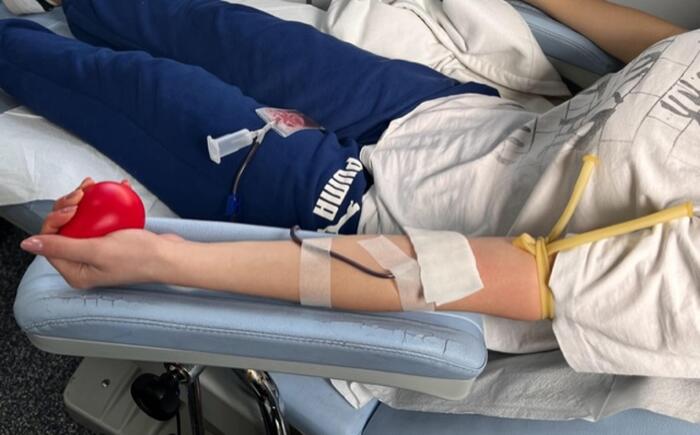Nearly 120 researchers, from around thirty laboratories or universities, responsible for scrupulously analyzing the effects of 70 drugs on the Covid-19. And this, in barely three months. The project, led by Dr. Nevan Krogan of the UCSF Quantitative Biosciences Institute in California, the results of which were published on April 30 in the journal Nature, is of considerable scale.
The purpose of this research? To determine if molecules already used to treat other pathologies could prove to be effective in fighting Covid-19. And so, accelerate the end of the epidemic. Because, if clinical trials are in progress, no miracle drug has, to date, been identified. This study, which highlights the antiviral action of several molecules, some of which would be more effective than the famous hydroxychloroquine, already offers promising lessons.
From the end of January, when the SARS-CoV-2 genome could be sequenced, Dr. Nevan Krogan succeeded in bringing together a team of 120 scientists, from several laboratories and American universities, as well as from the 'Institut Pasteur, in France, in order to sift through the effects of several molecules, obtained from prescription drugs, over the counter or in development.
"Drug repositioning"
"They wanted to try to find human cellular proteins that interact with viral proteins (essential for the spread of the virus), assuming that if we knew of drugs that interfere with these cellular proteins, they might could be used in the treatment of Covid-19 ", explains to Parisian Christophe D'Enfert, scientific director of the Institut Pasteur, who participated in the study.
“We are talking about drug repositioning here. That is to say, we are going to try to apply a drug, which has a known use, to a new use ”, specifies the French researcher. With a difficulty: these molecules must not create side effects, when they are treated for a disease other than the initial pathology.
Dr. Krogan's team first created a map of 300 human proteins. It is thanks to them that SARS-CoV-2 can infect cells and reproduce. The researchers also drew up a list of drugs known to interact with these proteins and selected 69 molecules, considered to be the most promising in their antiviral activity.
The @QBI_UCSF Coronavirus Research Group (QCRG) is happy to present our Virus-Human # SARSCoV2 Protein Interaction Map published in @nature. We tested clinically-approved drugs / compounds derived from our map and found many with potential to treat # COVID19.https: //t.co/5OxMqW2QRP pic.twitter.com/vo8RSkUTmd
- Krogan Lab (@KroganLab) April 30, 2020They were, of course, not chosen by chance. “A certain number of molecules already had a marketing authorization, others were in clinical development, specifies Christophe D'Enfert. So we already had a certain amount of information about them. The idea was to be able to move quickly to clinical studies. "
"They were allowed to test their hypotheses quickly"
This is where the Institut Pasteur comes in. The French laboratory, which managed to isolate and cultivate the virus at a very early stage in the laboratory, is called upon to test the effectiveness of the selected molecules. From the beginning of March, his team "took charge of the evaluation of around fifty molecules", reports Professor D'Enfert. Another team does the same in New York.
Newsletter - The essentials of the news
Every morning, the news seen by Le ParisienI'm registering
Your email address is collected by Le Parisien to allow you to receive our news and commercial offers. Find out more
“The idea was to determine if, when we put cells in contact with the virus, in the presence of the molecule, it is still able to proliferate. They were allowed to test their hypotheses as quickly as possible. This gives more value to the study, ”also underlines the researcher. He salutes this unprecedented collaboration: “It is interesting, because it was done in a context where we have never seen each other physically, and it made it possible to produce this quantity of data in record time. "
The coronavirus examined at the Pasteur Institute: "Everything is to be learned, we receive 10 samples per day"
According to him, of the 69 molecules listed, only "6 or 8 have so far presented an interesting effect". While some have yet to be tested, the first results are conclusive, since some of these molecules have shown effective activity against the virus. "Some have been used in the field of oncology, others for neuro-cognitive diseases ... The panel is quite wide", details Professor d'Enfert. Indeed, molecules used in antidepressant, antipsychotic, anxiolytic, or antihistamine drugs also show positive effects.
Halftone hydroxychloroquine
Hydroxychloroquine, used in particular against malaria, which is currently the subject of numerous clinical trials on the treatment of Covid-19, has also been tested. With less pleasing results. "Among the molecules tested, some are probably more interesting than hydroxychloroquine or chloroquine, because they are more active and would, a priori, have fewer side effects," notes Christophe D'Enfert. Several patients who participated in clinical trials did indeed report serious heart problems. "If the track of hydroxychloroquine was indeed interesting, then it will be worth exploring these molecules a little more upstream," insists the researcher.
In addition, scientists have been able to demonstrate that another molecule, dextromethorphan, used in particular in cough medicines, could promote the growth of the virus. They therefore call for extreme caution in its use during this epidemic.
While much research needs to be carried further, the prospect of a rapid clinical trial, with some of these most effective molecules and whose effects are already known, is not inconceivable. "They already have, for some, a clinical history, we know their non-toxicity and we can imagine that certain studies lead directly to clinical trials, without passing through animals", supports the French researcher. Soon, therefore, human tests for these "repositioned drugs"?







